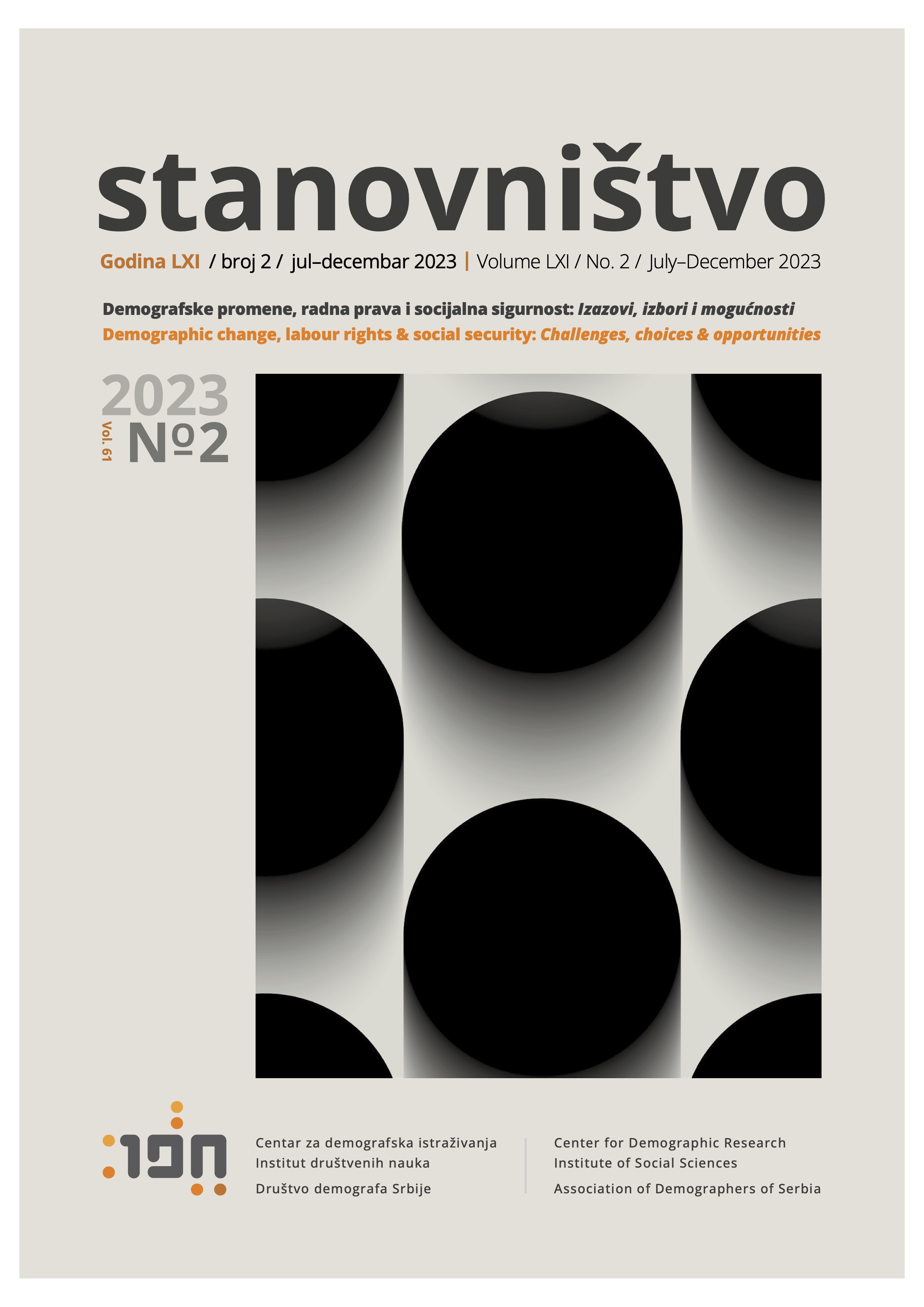Tranzicija od rada sezonskih radnika ka trajnoj radnoj imigraciji - slučaj Srbije
Transition from work of seasonal workers to permanent labour immigration - the case of Serbia
Author(s): Mario ReljanovićSubject(s): Social Sciences, Economy, Law, Constitution, Jurisprudence
Published by: Институт друштвених наука
Keywords: labour migrations; labour market; employment of foreigners; single permit; working conditions
Summary/Abstract: The current deficit of workers in the Serbian labour market is a consequence of several complementary factors. Among them, a few important challenges can be singled out: labour migrations of domestic workers, decrease in the number of working-age residents, as well as an increase in the amount of new jobs. At the same time, there is a large number of domestic workers who do not want to work in unfavourable working conditions and forms of work engagement, which leads to high rates of inactivity in the labour market. The effect of these circumstances led to an attempt to transform the regime of employment of foreign workers. The current system was created in the conditions of a self-sufficient labour market, where the presence of foreign labour was short-term and limited to specific jobs. Today, however, there is a need to facilitate the permanent immigration of workers to Serbia. The research followed the efforts to standardise the new employment regime for foreigners, which enabled foreign workers to have easier access to the labour market and long-term work engagement. The quality of the undertaken or announced measures, their consequences for the labour market, labour rights of foreign workers, and the quality of supervision over the application of the legal framework were all examined in an attempt to show how the new normative framework is intended for the permanent settlement of immigrant workers, instead of the short-term seasonal use of foreign labour. The issue of integration of foreign workers and their families was considered a special challenge, that is, whether it was enough to change the regime of work permits in order to attract a larger number of workers who will successfully integrate into social life and the community in Serbia. The basic starting hypothesis was that Serbia’s labour market needs a larger number of workers from abroad but also that partial changes in regulations would not necessarily lead to the creation of conditions for their permanent settlement. The normative analysis method was used in the research.
Journal: Stanovništvo
- Issue Year: 61/2023
- Issue No: 2
- Page Range: 129-144
- Page Count: 16
- Language: Serbian

